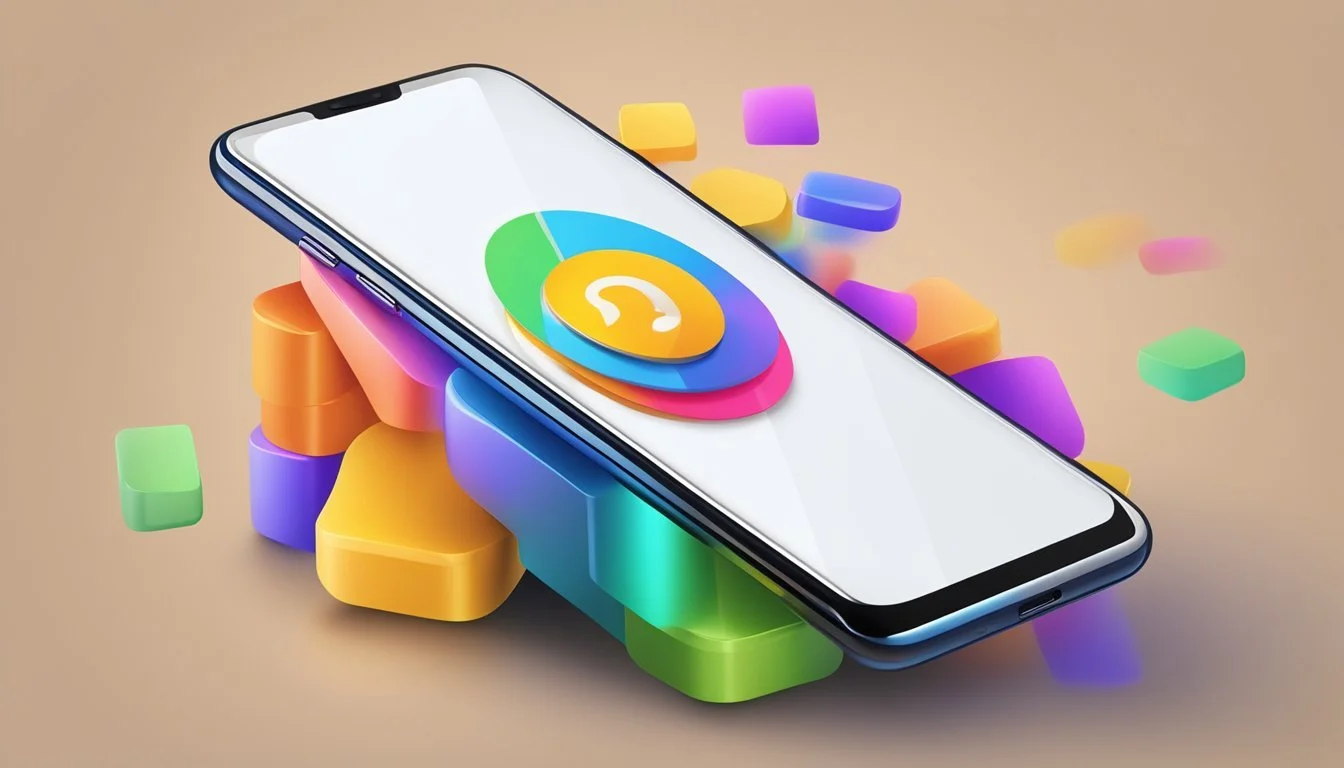Understanding Why a Narcissist Suddenly Blocks Contact
Narcissists often use blocking as a manipulative tactic in relationships. This sudden cut-off can leave the blocked person feeling confused, hurt, and questioning their self-worth. When a narcissist blocks someone, it typically serves as a means of control, punishment, or avoidance of accountability.
The act of blocking allows narcissists to maintain their inflated sense of self-importance while simultaneously exerting power over others. They may employ this strategy during the devaluation or discard phases of a relationship cycle. It can be particularly devastating for those who have formed emotional attachments to the narcissist.
Understanding the motivations behind a narcissist's blocking behavior can help individuals protect their emotional well-being. Recognizing that the block is more about the narcissist's insecurities than any fault of the blocked person is crucial. This knowledge empowers individuals to focus on healing and moving forward rather than becoming caught in a cycle of self-blame and attempts to reconnect.
Understanding Narcissism
Narcissism is a complex personality trait characterized by an inflated sense of self-importance and a deep need for excessive attention and admiration. It can significantly impact relationships and social interactions.
Defining Narcissistic Personality Disorder
Narcissistic Personality Disorder (NPD) is a mental health condition diagnosed when narcissistic traits become extreme and pervasive. Individuals with NPD exhibit a grandiose sense of self-importance and a preoccupation with fantasies of unlimited success, power, or brilliance.
They often believe they are special or unique and can only be understood by other exceptional people. This disorder affects approximately 1% of the general population.
NPD is characterized by a persistent pattern of grandiosity, a constant need for admiration, and a lack of empathy for others. These symptoms typically begin in early adulthood and manifest in various social contexts.
Traits of a Narcissist
Narcissists display several distinct characteristics:
Exaggerated self-importance
Preoccupation with fantasies of success and power
Belief in their own uniqueness
Need for constant admiration
Sense of entitlement
Interpersonal exploitation
Lack of empathy
Envy of others or belief that others envy them
Arrogant behaviors or attitudes
These traits often lead to difficulties in maintaining healthy relationships. Narcissists may struggle with criticism, react with rage or contempt, and have trouble regulating their emotions.
Narcissistic Supply and Control Tactics
Narcissistic supply refers to the admiration, attention, and validation that narcissists crave. They seek this supply through various means, including achievements, appearances, or manipulating others.
Control tactics are often employed to maintain their narcissistic supply. These may include:
Gaslighting: Manipulating someone's perception of reality
Love bombing: Overwhelming someone with affection and attention
Silent treatment: Withdrawing communication as punishment
Triangulation: Involving a third party to create jealousy or tension
Blocking on social media or phone is another control tactic. It allows narcissists to manipulate the narrative, avoid accountability, and assert dominance in relationships.
Understanding these tactics can help individuals recognize and respond to narcissistic behavior more effectively.
The Role of Block in Relationships
Blocking serves as a powerful tool in relationship dynamics, often wielded to exert control and influence emotional responses. It can dramatically alter the balance of power between individuals.
Why Narcissists Resort to Blocking
Narcissists frequently use blocking as a means of asserting dominance and devaluing others. By cutting off communication, they aim to maintain control over the narrative and protect their fragile self-image. This tactic allows them to avoid accountability and criticism.
Blocking also serves as a form of punishment, designed to create confusion and self-doubt in the blocked individual. It's a way for narcissists to manipulate emotions and keep others off-balance.
In some cases, narcissists block to provoke a reaction. They may hope the blocked person will pursue contact, feeding their need for attention and validation.
The Impact of Blocking on Relationship Dynamics
Blocking can severely disrupt relationship dynamics. It creates an imbalance of power, leaving the blocked person feeling rejected and powerless. This sudden loss of connection can trigger intense emotional responses, including anxiety and self-blame.
The silent treatment imposed by blocking often leads to heightened stress and uncertainty. The blocked individual may struggle to understand the reasons behind the action, leading to rumination and emotional distress.
Blocking can also damage trust and intimacy in relationships. It sets a precedent for unhealthy communication patterns and can make reconciliation more challenging. The fear of being blocked again may lead to walking on eggshells, further straining the relationship.
Analyzing the Block: Reaction and Emotions
Being blocked by a narcissist can trigger intense emotional responses and have lasting psychological impacts. The experience often leaves individuals grappling with a range of complex feelings as they process the sudden disconnection and its implications.
Immediate Emotional Reactions
When a narcissist blocks someone, the initial reaction is often shock and disbelief. Many people feel a surge of anxiety and panic as they realize they've been cut off. This abrupt severance can lead to feelings of rejection and abandonment.
Anger may quickly follow as the blocked individual processes the unfairness of the situation. They might experience intense frustration at their inability to communicate or seek closure.
Confusion is also common. People often struggle to understand why they were blocked, especially if it seemed to come out of nowhere. This uncertainty can fuel obsessive thoughts and self-doubt.
Sadness and grief typically set in as the reality of the situation sinks in. The loss of connection, even with a toxic person, can be deeply painful.
Long-Term Psychological Effects
Over time, being blocked by a narcissist can have significant psychological impacts. Many individuals struggle with lingering feelings of worthlessness and inadequacy. The narcissist's actions may reinforce existing insecurities or create new ones.
Trust issues often develop or worsen. The experience can make people wary of forming new relationships, fearing similar rejection or manipulation.
Some may experience symptoms of anxiety or depression as they grapple with unresolved emotions and unanswered questions. The lack of closure can make it difficult to move on.
On the positive side, the block can serve as a catalyst for healing and growth. It may prompt individuals to seek therapy, engage in self-reflection, and ultimately break free from the narcissist's influence.
Setting Boundaries and Protecting Well-Being
Establishing healthy boundaries and prioritizing self-care are crucial for safeguarding one's mental and emotional well-being when dealing with narcissistic individuals. These practices help maintain personal autonomy and promote healing.
Importance of Healthy Boundaries
Boundaries define acceptable behaviors and protect individuals from manipulation. They serve as a shield against narcissistic tactics, allowing people to maintain their sense of self. Clear boundaries communicate personal limits and needs effectively.
Setting boundaries involves assertive communication and consistent enforcement. It may include limiting contact, refusing to engage in arguments, or ending conversations when they become disrespectful. Healthy boundaries foster respect and create a safer emotional space.
Strong boundaries can lead to increased self-esteem and reduced stress. They help individuals regain control over their lives and relationships. By establishing boundaries, people can protect their time, energy, and emotional resources from being drained by narcissistic behaviors.
Self-Care Strategies
Self-care is essential for maintaining mental health when dealing with narcissists. It involves prioritizing one's own needs and well-being. Regular exercise, adequate sleep, and a balanced diet form the foundation of physical self-care.
Emotional self-care includes practicing mindfulness, journaling, and seeking support from trusted friends or professionals. Engaging in hobbies and activities that bring joy can help reduce stress and boost mood.
Setting aside time for relaxation and self-reflection is crucial. This may involve meditation, deep breathing exercises, or simply taking quiet moments to recharge. Self-care also means learning to recognize and validate one's own feelings and experiences.
Building a support network of understanding individuals can provide validation and encouragement. Seeking therapy or counseling can offer valuable tools for healing and personal growth. Self-care empowers individuals to focus on their own healing and emotional freedom.
The Dynamics of Social Media and Blocking
Social media platforms have become integral to modern relationships, shaping how people interact and perceive each other. Blocking functions as a digital boundary, impacting social connections and personal validation.
Public Perception and Validation
Social media profiles often serve as curated representations of individuals' lives. Users seek validation through likes, comments, and follower counts. When a narcissist blocks someone, it can disrupt this flow of validation.
Blocked individuals may feel a sense of rejection or exclusion from the narcissist's online world. This action can impact mutual friends' perceptions, as they may notice the sudden disappearance of interactions between the two parties.
Some narcissists use blocking as a tool to control their image. By removing a person from their online space, they curate a narrative that excludes that individual's perspective or influence.
Navigating Social Media Connections
Blocking alters the landscape of online social networks. It can create awkward situations for mutual friends who may feel caught between the blocker and the blocked.
Users often rely on social media to stay connected with their support network. When blocked, individuals may lose access to shared groups, events, or information channels.
Some platforms allow partial blocking, where content remains visible but interaction is limited. This can create confusion and mixed signals in digital relationships.
Navigating post-blocking interactions requires emotional intelligence. Blocked individuals may need to reassess their online presence and find alternative ways to maintain connections with shared social circles.
Moving Forward: Life After Being Blocked
Being blocked by a narcissist can be challenging, but it also presents an opportunity for personal growth and healing. This process involves self-reflection, building a strong support system, and embracing positive changes.
The Journey of Healing
Healing from narcissistic abuse takes time and patience. Individuals may experience a range of emotions, including anger, sadness, and confusion. It's essential to acknowledge these feelings and work through them.
Therapy can be a valuable tool in the healing process. A mental health professional can provide guidance and coping strategies tailored to the individual's needs.
Self-care practices play a crucial role in recovery. Regular exercise, proper nutrition, and adequate sleep contribute to overall well-being. Mindfulness techniques, such as meditation or journaling, can help process emotions and gain clarity.
Setting boundaries is vital for protecting oneself from future abuse. This includes both physical and emotional boundaries in relationships.
Building a Supportive Network
A strong support network is crucial for recovery after being blocked by a narcissist. Surrounding oneself with positive, empathetic individuals can provide emotional comfort and practical assistance.
Friends and family members can offer a listening ear and much-needed encouragement. Support groups, both online and in-person, connect individuals with others who have had similar experiences.
Professional support, such as counselors or therapists specializing in narcissistic abuse, can provide expert guidance and validation. They can help individuals develop healthy coping mechanisms and rebuild self-esteem.
Engaging in community activities or volunteering can expand one's social circle and foster a sense of belonging and purpose.
Embracing Change and Growth
Moving forward after being blocked by a narcissist offers an opportunity for personal growth and positive change. It's a chance to rediscover oneself and pursue long-neglected interests and goals.
Setting new personal and professional objectives can provide direction and motivation. This might include advancing in a career, learning new skills, or exploring hobbies.
Developing self-awareness is key to avoiding similar relationships in the future. This involves recognizing red flags and understanding one's own needs and boundaries.
Building self-confidence is an important aspect of growth. Celebrating small achievements and practicing self-compassion can boost self-esteem and resilience.
Embracing a growth mindset allows individuals to view challenges as opportunities for learning and development. This perspective can lead to increased resilience and adaptability in various aspects of life.
Case Studies and Personal Stories
Emma's experience with narcissistic blocking left her feeling confused and worthless. After her ex-boyfriend suddenly cut off all contact, she struggled with self-doubt for months.
John faced similar challenges when his narcissistic mother blocked him on social media. The abrupt silence amplified feelings of rejection he had battled since childhood.
Maria's narcissistic partner used blocking as a control tactic in their relationship. He would cut off communication after arguments, leaving Maria anxious and desperate to reconnect.
These stories highlight common themes in narcissistic abuse:
Sudden withdrawal of affection
Victims left questioning their self-worth
Amplification of existing insecurities
James found healing through therapy after being blocked by his narcissistic friend. He learned to recognize the abuse cycle and set healthier boundaries in future relationships.
Sarah's support group helped her process the pain of being blocked by her narcissistic sister. Sharing experiences with others who understood provided validation and strength.
While each case is unique, these personal accounts demonstrate the emotional toll of narcissistic blocking. They also show the potential for growth and recovery with proper support.
Professional Perspectives
Mental health experts and relationship professionals offer valuable insights into narcissistic blocking behavior. Their expertise sheds light on the psychological motivations behind this action and provides guidance for those affected.
Psychological Insights on Blocking
Psychologists view narcissistic blocking as a control tactic rooted in deep-seated insecurities. It serves as a defense mechanism, allowing narcissists to avoid confrontation and maintain their fragile self-image.
This behavior often stems from fear of abandonment or criticism. By blocking, narcissists create a false sense of power and control over the relationship dynamic.
Mental health professionals emphasize that blocking is rarely about the blocked individual's actions. Instead, it reflects the narcissist's inability to handle emotional discomfort or perceived threats to their ego.
Advice from Relationship Experts
Relationship specialists recommend focusing on self-care and emotional healing when blocked by a narcissist. They advise against attempting to regain contact, as this often reinforces the narcissist's sense of control.
Experts suggest seeking support from friends, family, or therapists to process the experience. Setting clear boundaries is crucial if future communication occurs.
Professional guidance often includes developing strategies to rebuild self-esteem and recognizing red flags in future relationships. Experts stress the importance of understanding that the blocking is not a reflection of the victim's worth.



